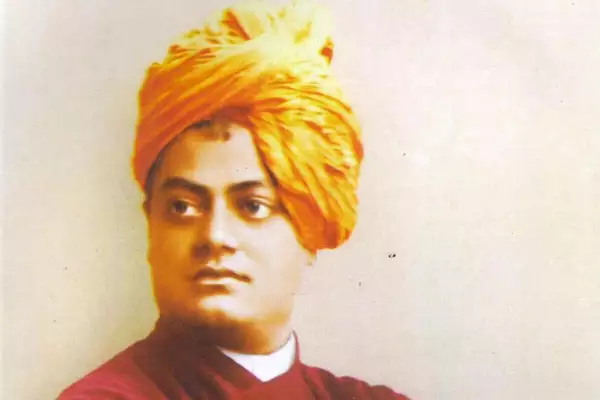The National Youth Festival was recently held from January 12 to 16 to commemorate National Youth Day, a birth anniversary of Swami Vivekananda.
About the National Youth Festival 2024:
- The National Youth Festival is an annual event coinciding with National Youth Day and acts as a platform for youth engagement and empowerment.
- This year’s theme was “Viksit Bharat@ 2047: Yuva ke liye, yuva ke dwara”, which emphasizes the role of the youth in shaping India’s future by 2047.
- the National Youth Festival 2024 is the 25th National Youth Festival.
About the National Youth Day:
- TheNational Youth Day is celebrated annually on January 12 as a tribute to Swami Vivekananda’s birth anniversary and as an occasion to inspire the youth to embrace his values.
- It is also known as Rashtriya Yuva Diwas.
- In 1984, the Indian Government first declared to celebrate the birthday of Swami Vivekananda as National Youth Day.
- The theme for National Youth Day 2024 is “Arise, Awake, and Realise the Power You Hold.”
About the Swami Vivekananda:
- Swami Vivekananda was a disciple of Sri Ramakrishna Paramahansa, who contributed to national integration in colonial India.
- He was born as Narendra Nath Datta on January 12, 1863, in Kolkata.
- Vivekananda was influenced by western ideas such as Universalism, via Unitarian missionaries who collaborated with the Brahmo Samaj.
- Swami Vivekananda passed away on July 4, 1902.
Spiritual work:
- He had transformed modern Hinduism and helped bridging the cultural gap of East and West.
- He had formed a unique monastic brotherhood under Sri Ramakrishna’s guidance.
- He had founded the Ramakrishna Mission, along with Taraknath, that focused on uplifting the masses through education and spirituality.
- He had spent years spreading Vedanta in the USA and London and interpreted many Hindu philosophy for Western audiences.
- He had provided a new understanding of religion, by emphasizing its scientific and universalaspects and integration of Western science with Indian spirituality.
- This came to be known as Neo-Vedanta.
- He had introduced his 4 yoga’s model, which includes Raja yoga, his interpretation of Patanjali’s Yoga sutras, which offered a practical means to realise the divine force within which is central to modern Western esotericism.
- Other 3 yogas are- Karma-yoga, Jnana-yoga and Bhakti-yoga.
- Vedanta Society of New York (VSNY) was the first Vedanta Society founded by him in New York in 1894.
- He founded 2 monasteries at-
- The Advaita Ashrama at Mayavati in the Himalayas near Almora;
- Madras (now Chennai).
Philosophy and teachings of Swami Vivekananda:
- He gave the concept of “potential divinity of the soul” and enriched humanism in the modern age.
- He propagated the idea that “the divine, the absolute, exists within all human beings regardless of social status, and that seeing the divine as the essence of others will promote love and social harmony“.
- He had linked morality with the control of the mind, seeing truth, purity and unselfishness as traits which strengthened it.
Chicago Address of 1893:
- The Swami Vivekananda had delivered this speech at the World’s Parliament of Religions in Chicago in 1893.
- He condemned sectarianism, bigotry, and fanaticism and gave a call for universal harmony and understanding.
Books and Writings:
- Vivekananda’s writings include books like “Raja Yoga,” “Karma Yoga,” and “Jnana Yoga,” which provide insights into his philosophical thoughts.
- “Bartaman Bharat”, meaning “Present Day India“, is the only Bengali language magazine of Ramakrishna Math and Ramakrishna Mission.
- He founded 2 journals-
- Prabuddha Bharata in English
- Udbhodan in Bengali
Ref: Source
| UPSC IAS Preparation Resources | |
| Current Affairs Analysis | Topperspedia |
| GS Shots | Simply Explained |
| Daily Flash Cards | Daily Quiz |



